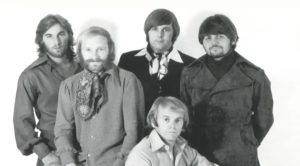The Real Meaning Behind Willie Nelson’s “Always On My Mind”

via Willie Nelson / Youtube
In the tapestry of music, few songs have managed to capture the essence of regret and longing as poignantly as Willie Nelson’s “Always On My Mind.” This emotive ballad, which found its way onto countless mixtapes and playlists, weaves a tale of remorse, unspoken feelings, and the timeless struggle of showing love when it matters most. But what is the history behind this iconic melody? Was it intended for Elvis Presley? How did Willie Nelson become its poignant voice?
“One Long Apology” Echoes of Inspiration
The inception of “Always On My Mind” emerged from a simple phone call that carried immense emotional weight. Musician Wayne Carson, caught in the midst of a delayed work assignment, tried to console his upset wife by saying, “I know I’ve been gone a lot, but I’ve been thinking about you all the time.” This statement ignited the spark of an idea for a song that would resonate with countless souls. Collaborating with Johnny Christopher and Mark James, the trio shaped this concept into a song that would encapsulate the universal theme of regretful longing.
The Elvis Connection and Willie Nelson’s Rendition
Rumors once swirled that “Always On My Mind” was written for the legendary Elvis Presley, during a period of his own marital turmoil. However, Carson clarified that the song’s sentiment was far broader, a collective apology from anyone who wished they had done better. Elvis did record the song, and his version gained recognition, but it wasn’t until country luminary Willie Nelson lent his distinctive voice that the song found its immortal form. Nelson’s rendition, recorded nearly a decade after Presley’s, soared to the top of the charts, resonating deeply with listeners across the globe.
The Lyrical Tapestry of Regret and Longing
At its core, “Always On My Mind” is a poignant exploration of regret and the unsaid. With lines like “Maybe I didn’t treat you / Quite as good as I should / Maybe I didn’t love you / Quite as often as I could,” the song captures the essence of missed opportunities and unexpressed affection. The lyrics, delivered with profound honesty by Willie Nelson, evoke the bittersweet feelings that accompany realizing the weight of one’s actions—or lack thereof—on a loved one.












